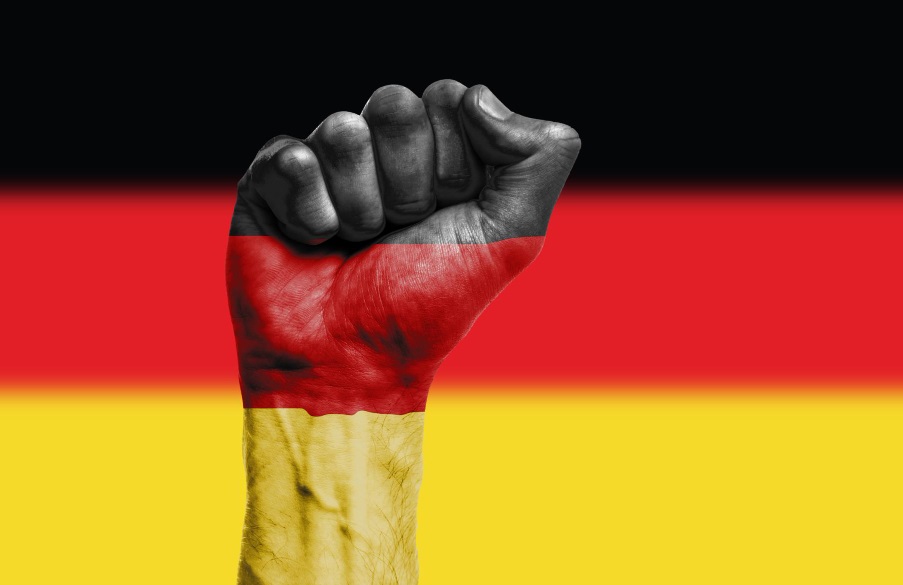Berlin police say protests can only be held in German or English
After interrupting a pro-Palestine demonstration conducted by Irish speakers outside the German parliament, Berlin police have stipulated that protests in the city must be conducted in either German, English, or, in certain cases, Arabic.
The demonstration, organized by the Irish Bloc Berlin, in conjunction with the Besetzung Gegen Besatzung (Occupy against Occupation) group, involved around 40 individuals singing Irish songs outside the Reichstag building to show solidarity with Palestine. Following observations of police actions targeting Arabic speakers at the protest site, the group decided to hold the event in Irish to draw attention to human rights concerns.
Upon the arrival of a significant police presence, protestors were divided into smaller groups and warned of potential arrests if they did not disperse immediately. Subsequently, police officers followed smaller groups in silence to a nearby museum after the protest was dispersed.
Despite Irish being recognized as one of the EU's official languages, Berlin police have confirmed to the Irish Independent that the use of Gaelic is prohibited at the protest site unless a police-appointed interpreter is present. This restriction is purportedly aimed at preventing speeches or chants that may contain content glorifying violence, with the police citing the need to understand such language to take appropriate legal action.
Caoimhe McAllister, a member of the Irish Bloc, emphasized that the group had deliberately chosen peaceful Irish songs for the protest, expressing concern over the portrayal of Irish people as terrorist sympathizers by the police. She attributed this repression to levels of Islamophobia and anti-Arab racism in Germany, stressing that it targets Irish solidarity with Palestine rather than Irish culture itself.
The Irish Bloc is among several pro-Palestine groups in Berlin that have faced scrutiny in recent months. In late March, the Jewish Voice for a Just Peace in the Middle East received notice from the Berliner Sparkasse bank that its account had been frozen, raising concerns about potential police involvement, which would contravene German law.

